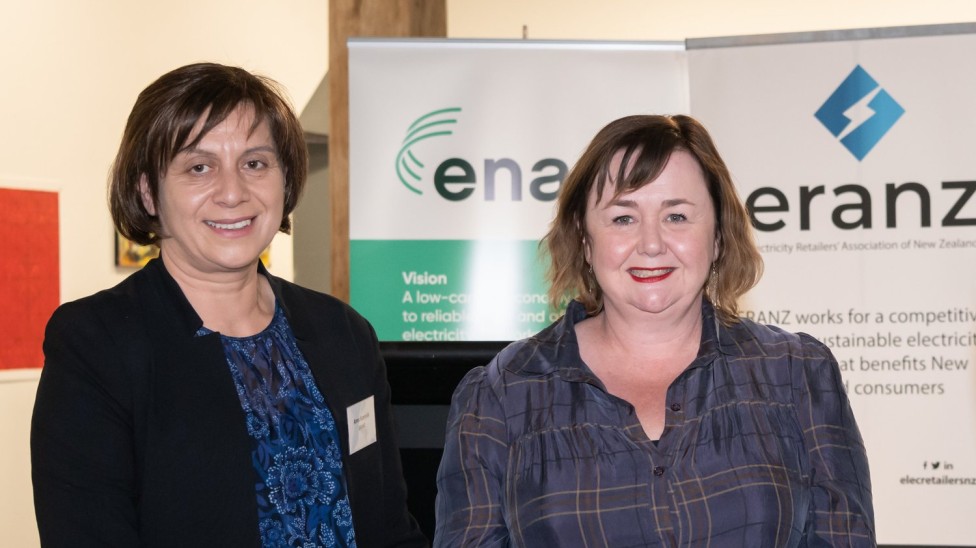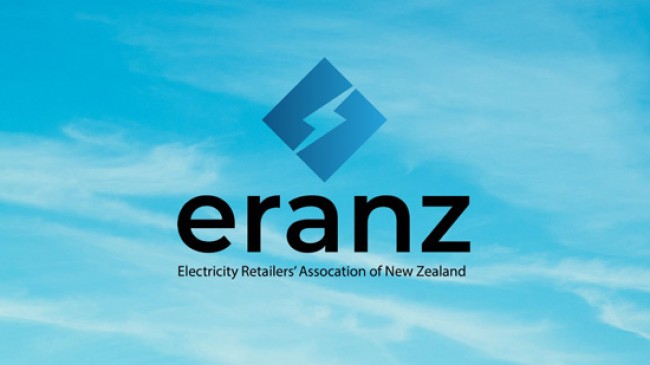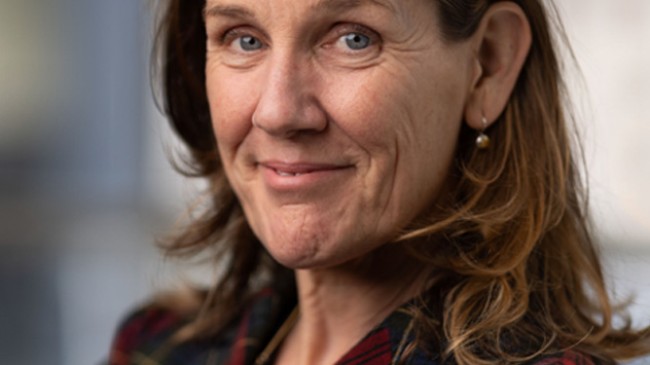
ERANZ Chair Anna Kominik and Energy and Resources Minister, Dr Megan Woods, at the inaugural ERANZ ENA networking function in Wellington, April 26, 2023
Tēnā rawa atu koe, Nigel.
Tēnā koe, Minister – thank you for your comments and a warm welcome to you this evening.
Ngā mihi nui ki a koutou katoa – to all of you here this evening – welcome – it’s great have you here at this joint ERANZ and ENA function.
This is the first time we’ve had a joint ENA / ERANZ get together - reflecting an increased cooperation between the two organisations – and an even broader theme of working together on common challenges that we are seeing across the energy sector – from decarbonising the economy to alleviating energy hardship.
This cooperation is appropriate and important - it’s what New Zealanders want from us.
Our consumers and customers don’t care about whether we are generators or lines companies or retailers – they just want affordable, reliable, and sustainable energy options -now and for the future. As Independent Chair, I can assure you the Board and members of ERANZ are committed to delivering what our consumers need from us – as I know the ENA are also.
ERANZ was heavily involved in the refresh of the Consumer Care Guidelines, with strong support from the ENA. This is an important initiative offering consumers more protection.
We have worked together with the ENA on funding and implementing the Power Credits scheme to support the removal of the low-user fixed charge. We’re coming up to the end of the first year of that five-year scheme and are pleased to have issued 6,500 credits to low-fixed charge customers who are showing signs of hardship - that’s about $750,000 of financial support.
The premise to all ERANZ initiatives is doing better together -- building partnerships with our colleagues in the energy sector, with government, with regulators as well as with community groups and social service providers.
Our award-winning EnergyMate programme is an example of this -- an industry, community and government programme that provides in-home energy coaching across the motū to whānau in need. Many ENA members are providing funding support for EnergyMate – thank you.
Independent evaluations show the benefit of this programme – not only in terms of helping customers and understanding the reality of consumer and switching data, but also in understanding the context of energy hardship for the purposes of making good policy and creating systemic change.
We will continue to seek to scale the programme up – and we look to government, industry and the wider business community to have skin in the game as we look to support more households in need. Funding these programmes is about delivery – accountability - and learning.
We know that as retailers we have a direct relationship with our customers that helps facilitate programmes such as EnergyMate.
But despite our best efforts, we can struggle to engage with whānau and communities most in need – and we know others face the same challenge.
That's where our community partners come in. Their hard work on the ground and grassroots connections means that when we work in partnership with them, we can build relationships with the people who benefit most from the advice and support of programs like EnergyMate.
It was heartening to see the Energy Hardship Expert Panel recommended more funding for healthy homes initiatives in its discussion paper released earlier this month. It’s a call that ERANZ strongly supports -- we’ve seen first-hand the impact of poor-quality homes on whānau experiencing hardship. These are national challenges that will take cooperation from entities well beyond our sector to put right.
Similar sector-wide cooperation is needed to support the transition to a low-carbon economy.
The recent UN Climate Change report reminds us that global emissions need to be cut by almost half by 2030 if warming is to be limited to 1.5 degrees Celsius. That is about a 7% per annum reduction in little more than two Parliamentary terms. That should focus all of our minds.
In a week when we commemorated our contribution to wars and conflicts that threatened global freedoms, New Zealand cannot now turn its back on its responsibilities as a global citizen around climate change.
We are blessed that New Zealand is already a world leader in renewable electricity generation and we’re making great progress as a sector in developing a clear vision of how we’ll reduce emissions in coming decades.
But, there’s no point having a big vision for the sector if Kiwis don’t know about it AND buy into it. We need to communicate clearly to New Zealanders – to give them confidence of the benefits that will come with the transition to a more sustainable future.
Not only will emissions fall, but consumers over time will see hip-pocket benefits from the investment in technologies that continue to promote quality of life and are kind to the planet. They’ll become more active participants in the market, providing greater choice and flexibility in how they use power.
It's a story we need to tell – and I’m really pleased to say there is a group of people in our sector working on that right now. We look forward to sharing more about that in coming weeks.
We can’t do any of these things without a different perspective around solving common challenges as a sector - working together to resolve thorny issues when they arise and keeping the focus on long-term goals ahead of short-term expediency.
That is how we gain public confidence that the energy sector is ready to lead Aotearoa New Zealand towards a low-carbon future and bring ALL its people along in the journey.
In closing, I’d like to thank our friends in the ENA for the close working relationship. You are critical partners in navigating the challenges of our future.
I’d also like to acknowledge the work of ENA CE Graeme Peters, given his imminent departure, and thank him, on behalf of all of ERANZ, for his considerable efforts.
And finally, thank you to all of you.
Tēnā koutou katoa.


